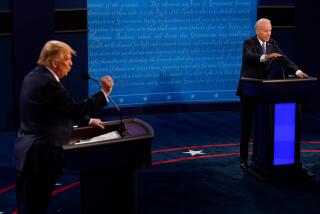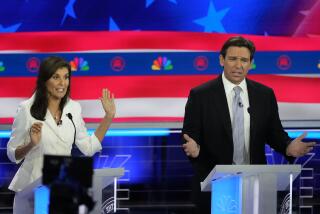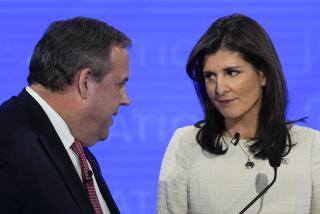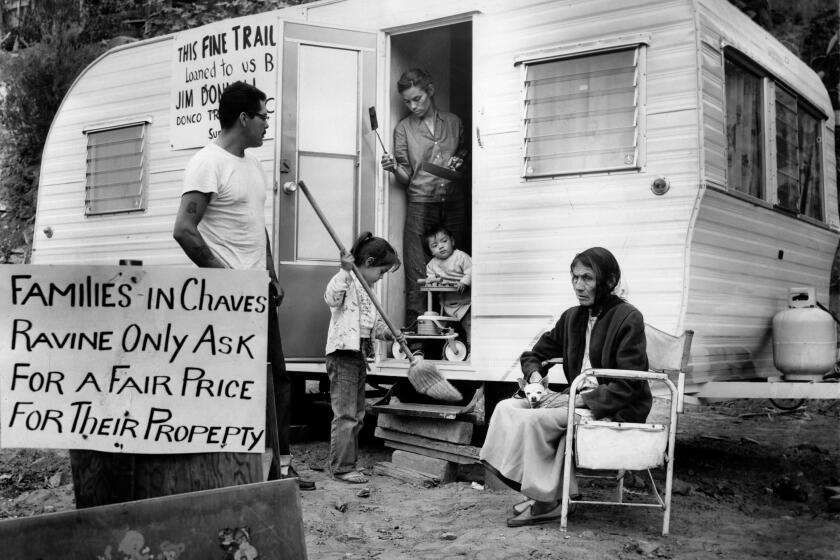Editorial: Watch the Republican debate -- you might learn something
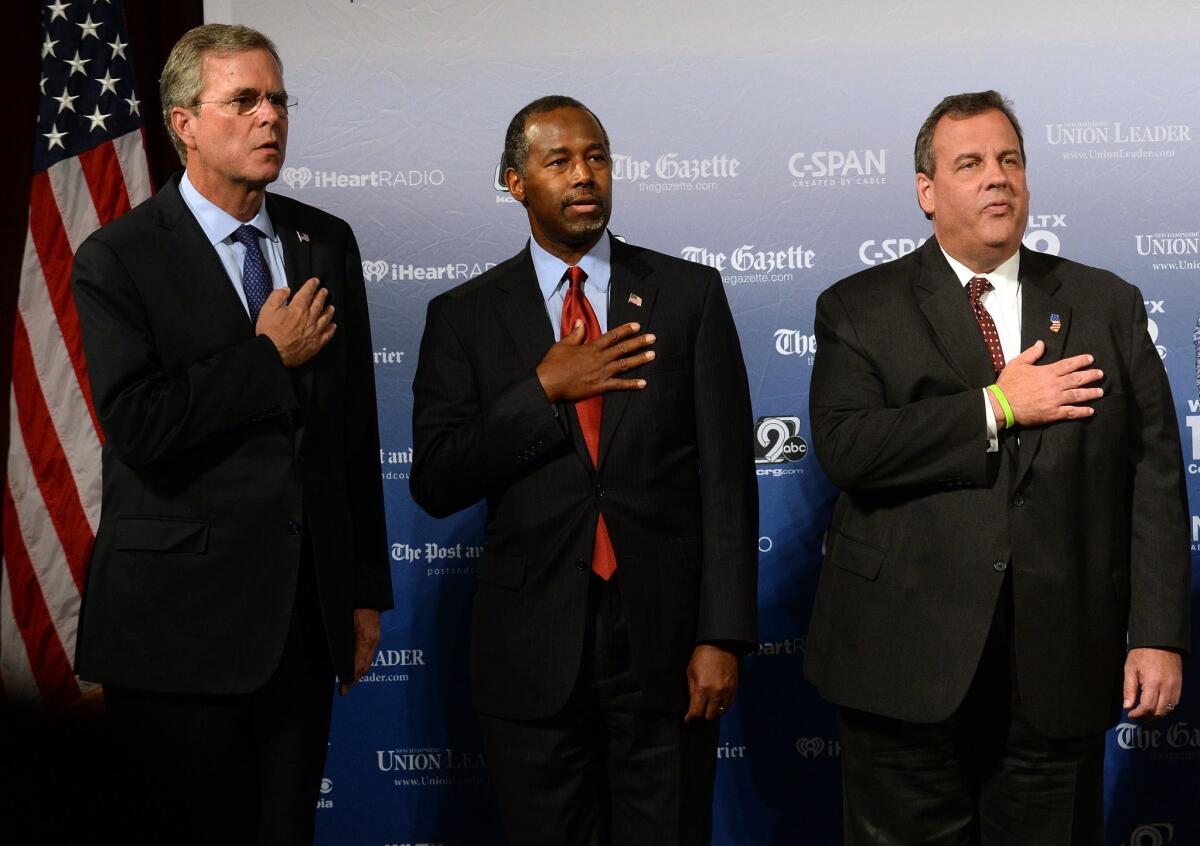
Former Florida Gov. Jeb Bush, Dr. Ben Carson and New Jersey Gov. Chris Christie, seen at a Republican presidential candidates’ forum on Aug. 3, will be among the 10 candidates participating in the GOP debate on Aug. 6.
It’s easy to be dismissive of televised presidential debates, especially those early in the political season when the candidates are many and the give-and-take may be minimal. The opening debate by the current crop of Republican hopefuls, which Fox News is airing in prime time Thursday, has come in for additional criticism because it will feature only 10 of 17 candidates (the others will be relegated to an encounter earlier in the day) — and because one of the performers will be the scene-stealing Donald Trump.
Still, we hope that voters — and not just Republicans — will watch both debates. The multiplicity of candidates that so bedeviled the organizers includes many who aren’t household names. The lineup is also more diverse than many voters may realize, especially when you consider the candidates who didn’t make the prime-time cut. The Republicans may be united in their scorn for the Obama administration, but there are significant differences that the debates may bring into better relief.
For example, Sen. Rand Paul of Kentucky, who will take part in the prime-time debate, has enunciated a more cautious approach to foreign intervention than some of his rivals. And former Florida Gov. Jeb Bush (who will also appear in prime time) and Sen. Lindsey Graham of South Carolina (who won’t) have been more receptive than other candidates to a path to legalization for immigrants who entered the country illegally.
After Thursday’s debates, Republican candidates will take part in at least 10 other similar events. Over time, the field will be winnowed to a number that can comfortably occupy a single stage. But how the candidates perform in the early, crowded contests could determine who is left standing in the later ones. For better or worse, the 2016 presidential campaign is well underway; it’s not too soon to get the candidates on the record about their positions.
As for Trump, the conventional wisdom is that his candidacy will eventually implode. Perhaps, but for now the blowhard businessman is channeling (it would be wrong to say he is “articulating”) a widespread disaffection with the political process in general and the Republican presidential field in particular. He also is emphasizing an issue — immigration — on which the eventual Republican nominee will have to enunciate a clear position.
Given Trump’s standing in public opinion polls, it would have been unfair to exclude him from Thursday’s main stage. His presence may in some sense be a distraction, but it will also put pressure on other candidates to explain to a national television audience whether and why they disagree with him.
For all their limitations, television debates provide valuable insight into the opinions of would-be leaders of the nation. That is as true at the beginning of a campaign as it is in the weeks before election day. Voters should tune in.
Follow the Opinion section on Twitter @latimesopinion and Facebook
More to Read
A cure for the common opinion
Get thought-provoking perspectives with our weekly newsletter.
You may occasionally receive promotional content from the Los Angeles Times.
